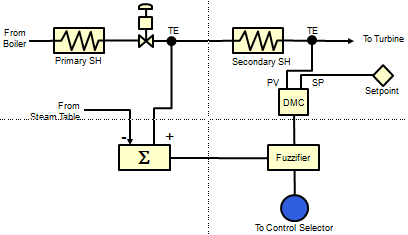 If you’re going to ISA Automation Week September 24-27, 2012 in Orlando, Florida, make sure to say hi to one of ISA’s newest Fellows, Emerson’s Jeffery Williams.
If you’re going to ISA Automation Week September 24-27, 2012 in Orlando, Florida, make sure to say hi to one of ISA’s newest Fellows, Emerson’s Jeffery Williams.
Jeff is being honored for his contributions in the development of embedded advanced control for use on large fossil fuel-fired boilers in power plants. These advanced controls optimize the combustion process while in turn minimize emissions. This honor is recognition by his ISA peers of outstanding achievement in scientific or engineering fields. Jeff holds two patents and has authored numerous papers on emissions optimization.
I’ve shared Jeff’s expertise is several posts including Reducing NOx through Combustion Optimization and Statistically Uncovering Problems to Lower Heat Rate.
At the recent Ovation Users’ Group meeting, Jeff presented along with Emerson’s John Mangan on how to minimize Heat Recovery Steam Generator (HRSG) tube problems. Closely controlling the steam temperature is important from a cycle efficiency and tube integrity standpoint as the temperature approaches the metal limits of the tube walls.
In the presentation, they highlighted the ways to control the temperature including surface adjustment, gas recirculation/gas tempering, excess air, burner tilt/out-of-service, gas bypass dampers, and attemperation. For main and reheat temperatures, the predominant methods of temperature control include excess air, burner tilt/out-of-service, and gas bypass dampers. It’s important to desuperheat to improve thermal efficiency, control for unintentional superheat conditions, and protect heat sensitive equipment or products made in the production process.Jeff and John compared control strategies using PID control with dynamic matrix control (DMC). The limits of using PID control were that this strategy provides linear output and is is more reactive to steam temperature conditions and load changes.
The DMC model-based approach more proactively approaches temperature control. In one of Eastman Chemical Company’s boiler steam control applications, they measured a 55% reduction in standard deviation from setpoint, 53% reduction in standard deviation of spray flow and valve movement, and quick and accurate control to setpoint with minimal deviations. More on this story is told in the World Coal Power Technology article, Letting off steam.
Using embedded advanced control based on DMC technology, control was more robust with fewer outages, overall heat rate was improved, and valve throttling was reduced and subjected to less wear and tear.





